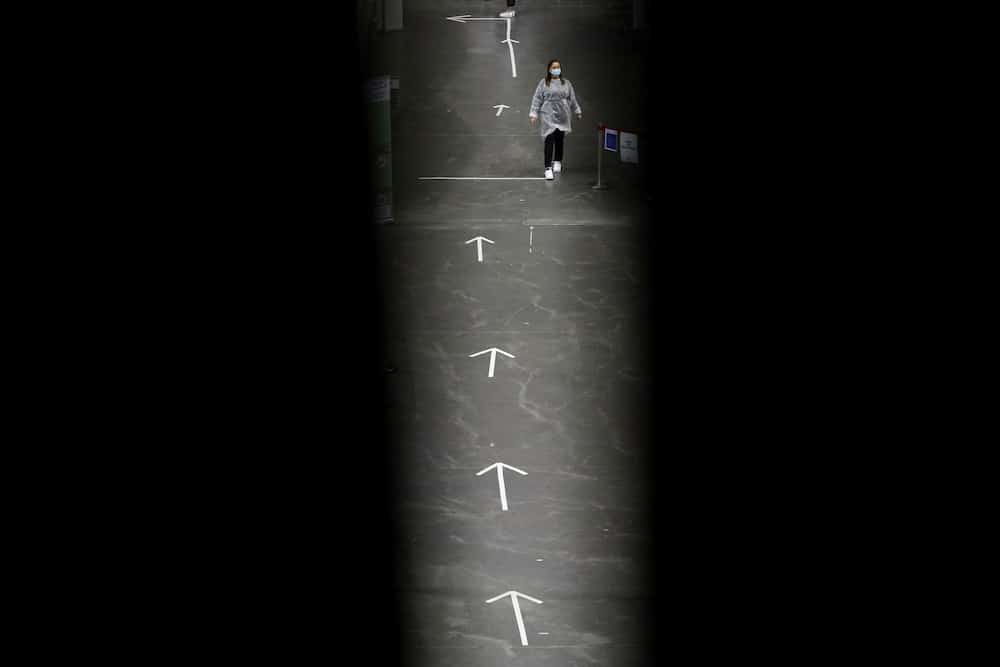The World Health Organisation has expressed concerns that rich countries spooked by the emergence of the Omicron variant could step up the hoarding of COVID-19 vaccines and strain global supplies again, complicating efforts to stamp out the pandemic.
The United Nations health agency, after a meeting of its expert panel on vaccination, reiterated its advice to governments against the widespread use of boosters in their populations so that well-stocked countries instead can send doses to low-income countries that have largely lacked access to them.
“What is going to shut down disease is for everybody who is especially at risk of disease to become vaccinated,” said Dr Kate O’Brien, head of the WHO’s department of immunisation, vaccines and biologicals.
“We seem to be taking our eye off that ball in countries.”
Months of short supplies of COVID-19 vaccines have begun to ease over the last two months or so and doses are finally getting to needier countries – such as through donations and the UN-backed COVAX program – and the WHO wants that to continue.
It has long decried “vaccine inequity” by which most doses have gone to people in rich countries, whose leaders locked down big stockpiles as a precautionary measure.
“As we head into whatever the Omicron situation is going to be, there is risk that the global supply is again going to revert to high-income countries hoarding vaccine to protect – in a sense, in excess – their opportunity for vaccination, and a sort of ‘no-regrets’ kind of approach,” O’Brien said.
“It’s not going to work,” she added.
“It’s not going to work from an epidemiological perspective and it’s not going to work from a transmission perspective unless we actually have vaccine going to all countries because where transmission continues, that’s where the variants are going to come from.”
Some wealthy governments want to leave no stone unturned to get their populations as close to full vaccination as possible.
But it is a matter of fair vaccine distribution, chair of the independent Strategic Advisory Group of Experts on Immunisation (SAGE) to the WHO Alejandro Cravioto said on Thursday.
He said the situation was different for those who have compromised immune systems, for whom the panel has already recommended a third dose.
As long as not enough vaccines are available, the priority must remain to offer everyone in the world a basic one-or two-dose vaccination against COVID-19, he said.
Full vaccination, meaning two doses of the Pfizer-BioNTech or Moderna jabs, provides people with a good level of protection against severe disease for at least six months, Cravioto said.
The Vaccination Council recommends that the first and second doses be given with the same vaccine, if possible, but a different shot can be used where capacity problems occur.
The council is still considering the question of whether providing booster shots with a different vaccine might make sense, in the interests of providing broader protection.
The council is expected to make recommendations in the near future.
Many questions remain about the severity, transmissibility and resistance to vaccines of the new Omicron variant which was first detected last month in southern Africa and has shown early signs of spreading faster than the widespread and deadly Delta variant driving the pandemic now.
O’Brien urged a “rational, global perspective” about “what’s actually going to shut down this pandemic”.
“We have the tools at hand, we have the choices we can make and the next days and weeks are really going to determine what direction the world decides it’s going to go in, on Omicron,” she said.
AAP
Get all the latest Canberra news, sport, entertainment, lifestyle, competitions and more delivered straight to your inbox with the Canberra Daily Daily Newsletter. Sign up here.



